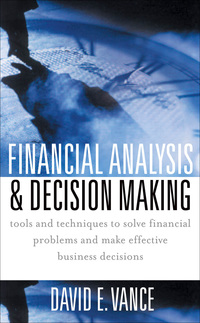Answered step by step
Verified Expert Solution
Question
1 Approved Answer
President Biden's student-debt forgiveness plan is likely to widen the federal budget deficit for the just-ended fiscal year, when compared with the White House's previous
President Biden's student-debt forgiveness plan is likely to widen the federal budget deficit for the just-ended fiscal
year, when compared with the White House's previous estimates.
Providing up to $20,000 in student-loan cancellations to millions of Americans will cost $379 billion over roughly
three decades, the Education Department estimated. That entire cost will be reflected as a one-time item in the
budget results for fiscal year 2022, which ended Sept. 30, a senior administration official said.
That accounting could result in a higher deficit than otherwise would have occurred. The White House has touted a
sizable narrowing of the federal deficit as a significant economic achievement. The debt-forgiveness costs falling
in the 2022 fiscal year means they won't be reflected in 2023 figures. Including the entire cost of student-loan
forgiveness in a single year is required under federal budget accounting rules.
In the current fiscal year, a slowing economy could result in lower tax receipts and higher government borrowing
costs as the Federal Reserve lifts interest rates to combat inflation. Total U.S. public debt outstanding crossed the
$31 trillion mark as of Oct. 3, according to Treasury Department data released Tuesday.
The Treasury will release figures showing budget results for the 2022 fiscal year later this month.
The White House in August projected the federal government would run a $1.03 trillion deficit in fiscal year 2022.
Based on that estimate and the cost of student-loan forgiveness, all else equal, the federal budget would instead
show a roughly $1.4 trillion shortfall.
The White House previously estimated a drop of roughly $1.8 trillion in the deficit from fiscal year 2021 to 2022.
The decrease was spurred by a sharp pullback in federal pandemic spending and strong tax receipts.
The administration has said the expected narrower deficit provided room to offer student-loan relief. The White
House estimated a smaller deficit in August than it did in March.
Republicans have argued the student-debt forgiveness plan will worsen the run-up in consumer prices .
The Education Department estimates the student-loan forgiveness plan will cost the federal government an
average of $30 billion annually when looking at the shorter time frame of 10 years. Administration officials have
said any upward pressure on inflation from student-debt forgiveness would be countered by the termination of a
pandemic pause on student-loan payments at the end of 2022.
Maya MacGuineas, president of the Committee for a Responsible Federal Budget, a Washington-based think tank
that has been critical of the student-loan relief plans, said the administration shouldn't think of deficit reduction as
an offset for new budget costs.
"The student-debt policy is massively expensive and fully unpaid for," she said.
Separately, Ms. MacGuineas said the total national debt crossing $31 trillion is a record "no one should be proud of."
A Treasury Department spokesman, commenting on the $31 trillion debt, said Mr. Biden's policies had helped spur
a historically fast economic recovery and aided deficit reduction.
"Looking forward, the Biden-Harris Administration has put forward fiscally responsible budgets with a focus on
investing in workers and families, reducing costs and bringing down deficits and the debt," he said.
The White House, in August, projected a $1.3 trillion deficit in the current fiscal year, which began Oct. 1.

Step by Step Solution
There are 3 Steps involved in it
Step: 1

Get Instant Access to Expert-Tailored Solutions
See step-by-step solutions with expert insights and AI powered tools for academic success
Step: 2

Step: 3

Ace Your Homework with AI
Get the answers you need in no time with our AI-driven, step-by-step assistance
Get Started


